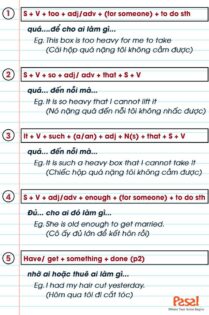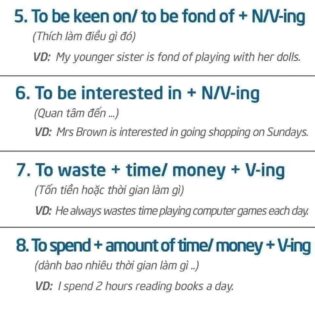Mainly đi với giới từ gì? Mainly là gì? là câu hỏi chung của rất nhiều người. Để hiểu hơn về ý nghĩa, ngữ pháp cũng như cách sử dụng “Mainly” trong Tiếng Anh như thế nào, hãy cùng Ngolongnd.net tìm hiểu chi tiết ngay trong bài viết dưới đây.

Nội dung chính:
Mainly là gì?
mainly /’meinli/:
for the most part; chiefly, principally, primarily, in the main
- phó từ
- chính, chủ yếu
- phần lớn
Ví dụ: he is mainly interested in butterflies.
Từ đồng nghĩa
adverb
above all , chiefly , essentially , first and foremost , generally , in general , in the main , largely , mostly , most of all , on the whole , overall , predominantly , primarily , principally , substantially , to the greatest extent , usually
Mainly đi với giới từ gì?
Các ví dụ:
<LIST E> belly, stomach belly, abdomen navel, umbilicus suck, nurse naked, nude murder, homicide dead, deceased dead, defunct dying, moribund lust, salacity lewd, libidinous read, peruse lie, prevaricate hearty, cordial following, subsequent crowd, multitude chew, masticate food, pabulum eat, regale meal, repast meal, refection thrift, economy sleepy, soporific slumberous, somnolent live, reside rot, putrefy swelling, protuberant soak, saturate soak, absorb stinking, malodorous spit, saliva spit, expectorate thievishness, kleptomania belch, eructate sticky, adhesive house, domicile eye, optic walker, pedestrian talkative, loquacious talkative, garrulous wisdom, sapience bodily, corporeal name, appellation finger, digit show, ostentation nearness, propinquity wash, lave handwriting, chirography waves, undulations shady, umbrageous fat, corpulent muddy, turbid widow, relict horseback, equestrian weight, avoirdupois blush, erubescence The word of classic origin in many instances survives only or mainly in the form of an adjective; as a noun (or other part of speech) it has completely or largely disappeared.
This property, to which it will be easy to prove that we, the undersigned, together with the other members of our family, are the lineal heirs, is believed to consist mainly of the two hundred thousand byzants assured to the said LION by SALADIN after the capitulation of Acre.
Thus the discoveries made by the Challenger expedition, like all recent advances in our knowledge of the phenomena of biology, or of the changes now being effected in the structure of the surface of the earth, are in accordance with and lend strong support to, that doctrine of Uniformitarianism, which, fifty years ago, was held only by a small minority of English geologists–Lyell, Scrope, and De la Beche–but now, thanks to the long-continued labours of the first two, and mainly to those of Sir Charles Lyell, has gradually passed from the position of a heresy to that of catholic doctrine.
On his final return to Athens, the restoration of his health was retarded by one of his long courses of reducing diet; he lived mainly on rice, and vinegar and water.
It is true that the charges brought forward by the other side involve the consideration of matters quite foreign to the pursuits with which I am ordinarily occupied; but, in that respect, I am only in the position which is, nine times out of ten, occupied by counsel, who nevertheless contrive to gain their causes, mainly by force of mother-wit and common-sense, aided by some training in other intellectual exercises.
We are teachers and we have dealt mainly with the mental or, as we prefer to call it, the spiritual requirements of children.
Marty was too good for a country church, he argued, mainly from his memories of the bare little one-room meetinghouse of his early childhood.
Although the shop was an unpretentious one, and catered mainly for the ha’p’orths of the juvenile patrons of the picture house next door, it was called “The Camden Town Confectionery Emporium,” and the title was printed over the little shop in large letters.
It is mainly due to the works of the Nobel family that Sweden has attained the reputation of Master Producer of Explosives.
Mainly through his intimacy with the spiritual mind of Petrarch, Boccaccio’s moral character gradually underwent a change from the reckless freedom and unbridled love of pleasure into which he had easily fallen among his associates in the court life at Naples.
As Lloyd Morgan puts it, “We are mainly at work upon the mental background.
The people were divided mainly into three parties, and the difficulties confronting the King were formidable.
They talked mainly about affairs in Finland, and with some of Oberg’s expressions of opinion Polovstoff ventured to differ.
Footnote: Vassar College, though professedly unsectarian, was mainly under Baptist control.
It is a daily paper, of $12 a year, and its circulation being mainly among the larger merchants, planters, and professional men, it is a fair index of the ‘public opinion’ of Louisiana, so far as represented by those classes of persons.
In antiquity, which knew nothing of the modern poetry of individual life, creative poetical activity fell mainly within the mysterious period when a nation was experiencing the fears and pleasures of growth: without prejudice to the greatness of the Greek epic and tragic poets we may assert that their poetry mainly consisted in reproducing the primitive stories of human gods and divine men.
For income the original promoters looked mainly toward a South Sea passage, gold mines, fisheries, Indian trade, and the production of silk, wine and naval stores.
While the growth of the bones occurs, of course, mainly during the earlier years of life, yet they do not attain their full maturity until about the twenty-fifth year; and it is stated that in persons devoted to intellectual pursuits, the skull grows even after that age.
She was now twenty; her brother Henri, serious, studious, plodding and determined to make a career, was a lawyer, and had made some reputation by his articles on statistical subjects; and Henriette, her elder sister, had found a husband in M. Davarande, whose wealth and position allowed her to devote herself to the life of empty amusement, divided mainly between long rounds of calls, the opera, and the Bois, which filled the days of the moneyed Paris bourgeoisie of that time.
He was a missed man; his value was not found out until he had gone; and it was determined–mainly amongst a pious, enthusiastic section of working people–to get him back again if possible.
The Protestants rebelled mainly against the usurpations and corruptions of the Catholic Church as an institution, not against the creed of the Fathers and schoolmen and theological doctors in all Catholic countries.
Phân biệt cách dùng Mainly, Most, Most of, Almost và The Most trong tiếng Anh
Mostly /ˈməʊstli/ (adv) = Mainly / Generally (hầu hết; chủ yếu dưới mọi trường hợp, thời gian).
Với vai trò là trạng từ (adv) , mostly có thể bổ nghĩa cho động từ thường, tính từ, trạng từ và cụm giới từ
Mostly có thể xuất hiện dưới câu để nhấn mạnh nghĩa “hầu hết” hay “chủ yếu”
Ví dụ:
- My work isn’t very varied. It’s mostly office work. (Công việc của tôi không đa đạng lắm. Chỉ chủ yếu là công việc văn phòng).
- Her working experience results from her father mostly . (Kinh nghiệm làm việc của cô ấy hầu hết bắt nguồn từ cha cô ấy).
Most (vai trò đại từ) + N (danh từ không xác định) = hầu hết, đa số.
Ví dụ:
Most Japanese people are friendly and patient. (Hầu hết người Nhật thì gần gũi và kiên nhẫn).
Tuy nhiên, bạn không được sử dụng “Most of” cho trường hợp tương tự. Theo đó, Most of ALL Japanese people are friendly and patient” thì mới đúng nhé
Most mang tức là “very” (rất; đóng vai trò là adv).
Ví dụ:
- His school is most reliable. (Ngôi trường này rất đáng tin cậy)
- He always finds those books most interesting. (Anh ấy cứ thấy một số cuốn sách ấy thú vị)
Most: sử dụng dưới dạng so sánh nhất của “much” hoặc “many”.
Ví dụ:
- I love my family (the) most . (Tôi yêu gia đình mình nhất).
- Among the donors listed therein, Mr. Green donated most money for this charity event. (Trong số một số người đóng góp, ông Green đã quyên góp nhiều tiền nhất cho sự kiện từ thiện này).
Most sử dụng dưới dạng so sánh nhất của một số tính từ, trạng từ.
Ví dụ:
- Tom is the most handsome student in my class. (Tom là nam sinh đẹp trai nhất dưới lớp tôi).
- Among those drivers, he drives the most carefully. (Trong số một số lái xe đó, anh ấy tài xế chăm chút nhất).
Most of /məʊst əv/ + a/an/the/this/that/these/those/my/his,…. + N (Danh từ xác định) = đa số, đa số.
Ví dụ:
- Most of the people I met want to have unadventurous lives. (Phần lớn một số người mà tôi đã gặp đều muốn có một cuộc sống không phiêu lưu mạo hiểm)
- Most of these letters were sent to me yesterday. (Phần lớn một số lá thư này được gửi đến tôi hôm qua).
MOST OF : được sử dụng để nói đến một nhóm chiếm phần lớn, được chia ra từ một khái quát = hầu hết, đa phần, đa số … dưới một nhóm/tổng thể nào đó, hoặc dưới một nhóm cái gì của ai… (vd: dưới nhóm này, lớp này, trường này, khu phố này…, của tôi, của cô ấy…)
=> Do đó dưới câu thường có cụm giới từ chỉ đầy đủ là nhóm gì, khái quát gì, nghĩa là phải nêu rõ nó là tại khái quát nào ra, chứ không nhìn chung chung được
Most of the people in this class don’t like bún chả.
=> Đa phần một số người dưới lớp này không thích (ăn) bún chả.
Không nói => “Most of the people don’t like bún chả”.
=> thiếu thông báo, người nghe sẽ nghi vấn “Which people?” (Những người nào?)
a. Most of + my, your, Dan’s, etc (tính từ sở hữu) + noun (plural noun/uncountable noun)
=> hầu hết một số cái gì/người nào (trong nhóm đó)… của người nào
- Most of my dreams are about women.
- Hầu hết một số giấc mơ của tôi đều là về phụ nữ.
- Most of your hair is white already.
- Phần lớn tóc của anh bị bạc hết rồi.
- Most of Dan’s clothes are hot pink.
- Đa phần quần áo của Dan đều màu hồng dạ quang (hồng neon).
- Johnson spent most of his life in London.
- Phần lớn cuộc đời của Johnson là tại Luân đôn.
- Most of their family are good athletes.
- Hầu hết một số thành viên dưới gia đình họ đều là một số vận động viên giỏi.
b. Most of + the + noun (plural noun/uncountable noun
=> hầu hết một số hầu hết cái gì/người nào … ở/của (nơi chốn, địa điểm, khu vực, vùng, lĩnh vực…
- I like most of the places I’ve been in Vietnam.
- Tôi thích hầu hết một số nơi mà tôi đã đến tại Việt nam.
- Most of the trees in Richmond Park are taller than four meters.
- Hầu hết một số cây cối tại công viên Richmond đắt hơn bốn mét.
- Most of the students in India study for engineering and medicine.
- Hầu hết một số sinh viên tại Ấn độ học ngành kỹ càng t huật và y học.
- Most of the water on Earth is saline.
- Phần lớn nước trên trái đất có muối.
- Most of the alcohol in Australia is being drunk at home.
- Phần lớn rượu tại Úc được người ta uống say sưa ở nhà.
- Most of the advertising of the resale was in the Wall Street Journal.
- Đa phần quảng bá việc bán lại tại dưới báo chí Wall Street.
c. Most of + đại từ làm túc từ: us, them, you. => hầu hết chúng tôi/họ/chúng/các anh… (trong một nhóm nào/nhóm gì đó)
- Most of us enjoy shopping.
- Hầu hết bọn tôi đều thích đi sắm sắm.
- Most of them are tourists.
- Đa phần họ là khách du lịch.
- Most of you are wrong.
- Phần lớn một số anh đều sai.
- The rumors are terrible and cruel. But, most of them are true.
- Những lời đồn đại tàn nhẫn và khủng khiếp. Nhưng đa phần đều đúng.
Almost /ˈɔːlməʊst/ = Nearly: hầu hết, hầu như, gần như (vai trò như trạng từ), suýt, hầu như…, sắp…
Khi nói về thời gian, số đo, kích cỡ, hoặc sự tiến bộ của một quá trình nào đó
Thường rất hay sử dụng chung với 3 từ all, every, no.
Không có tức là “hầu hết, gần toàn bộ, phần lớn, nhiều”
- It’s almost time to go.
- Sắp cho đến nay đi.
Bài tập vận dụng










